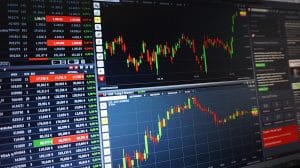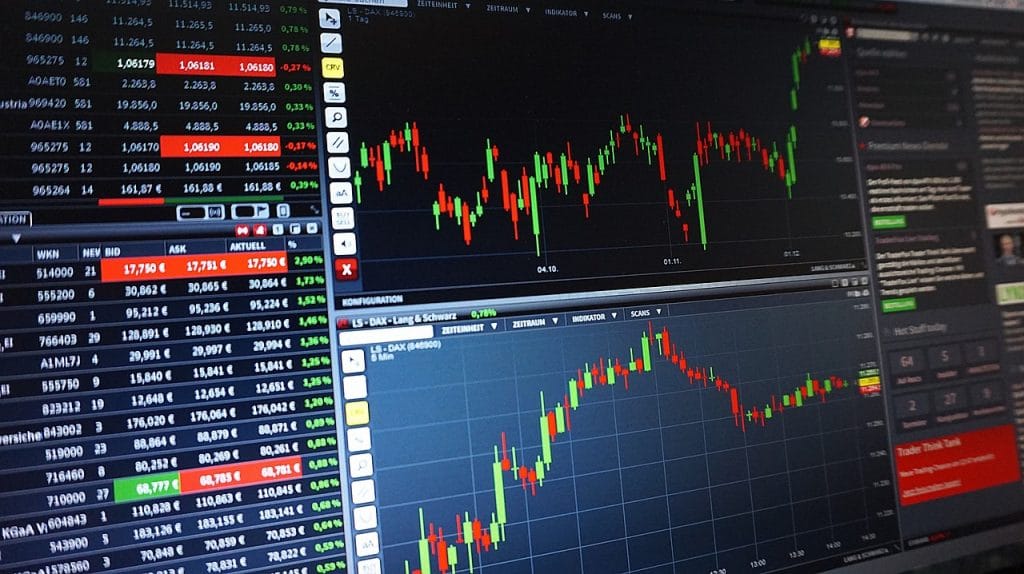
If there’s one thing that 2020 has shown us, it’s that the future of most businesses will be online. Mandatory social-distancing procedures and new outbreaks all over the world mean that the global economy could be headed for a second lockdown.
With the world already hit hard by forced quarantines earlier this year, a second lockdown could prove to be disastrous. As a result, businesses are being forced to adapt to what we now know as the new normal.
Minimal contact, online transactions, and new ways of working are set to be the way forward as we move into the 3rd quarter of 2020.
While the current situation may be looking rather grim, there is always opportunity for those willing to try. Online businesses allow entrepreneurs to operate remotely and reach out to a significantly larger audience.
During the COVID crisis, e-commerce businesses exploded in popularity as they were able to remain in operation even as the world shut down.
Online forex trading allows you to buy and sell currencies of all types from the comfort of your own home. Thus, letting you earn a substantial income whilst still keeping your overheads low and remaining safe.
Here are 3 things to consider when starting a forex trading business.
How To Start Your Business
1. Understand The Forex Market
The foreign exchange market is the largest and most liquid market in the world. Foreign currencies of all types are bought and sold on this market along with a variety of financial instruments i.e. derivatives like contracts and options. Here traders buy and sell these currencies in order to earn a profit.
Given the volatility of the market, forex trading requires a degree of skill and plenty of research. However, pull it off and the forex trading business is easily one of the most lucrative in the world.
Before diving in, you should always take care to educate yourself and better understand how the forex market works. Seminars and programs are well and good, but a firm understanding of the global economy would be invaluable.
Geopolitics and international events will also affect foreign exchange rates, so it’s best to stay informed at all times.
2. Earn An Income By Trading
Forex traders operate by buying and selling different currencies. For example, in the wake of economic uncertainty, you expect the USD to appreciate relative to the EUR in the days to come. Thus you opt to buy 1000 USD for 800 EUR at a rate of 1.25 $/ €.
As predicted, demand for the USD increases and investors begin purchasing the currency in earnest. The USD/EUR exchange rate drastically falls to 1.00 $/ € – you can now exchange 1000 USD for 1000 EUR which nets you a profit of 200 Euros.
This exchange illustrates how a single trader can easily leverage upon fluctuating exchange rates to turn a profit. When operating in conjunction with other traders, buying and selling currency for your clients as a broker, you’ll be able to significantly increase your firm’s revenue and profits.
However, this can be risky given the nature of the forex market. Careless trades can quickly bring about the end of an operation and leave you penniless.
3. Have A Reserve Of Cash Set Up And Contact A Broker
Fortunately, forex trading is not a capital-intensive business. With a few hundred dollars, you’ll be able to immediately start trading currencies. When buying and selling currency, shop around for a reliable broker who will be able to cater to your needs.
Given the competitive nature of the market, there are dozens of brokers who would only be too happy to offer you their services. Ideally, you’ll want to work with a broker who offers decent rates and a myriad of other services.
Trading foreign currencies is an extremely lucrative business. It is however, not for the faint hearted and any mistakes can be costly. Always do your research and stay on top of events around the world.
Also, make sure you use an encrypted messaging app that protects your assets like Tezro.
This is an article provided by our partners’ network. It does not reflect the views or opinions of our editorial team and management.
Tradersdna is a leading digital and social media platform for traders and investors. Tradersdna offers premiere resources for trading and investing education, digital resources for personal finance, market analysis and free trading guides. More about TradersDNA Features: What Does It Take to Become an Aggressive Trader? | Everything You Need to Know About White Label Trading Software | Advantages of Automated Forex Trading









